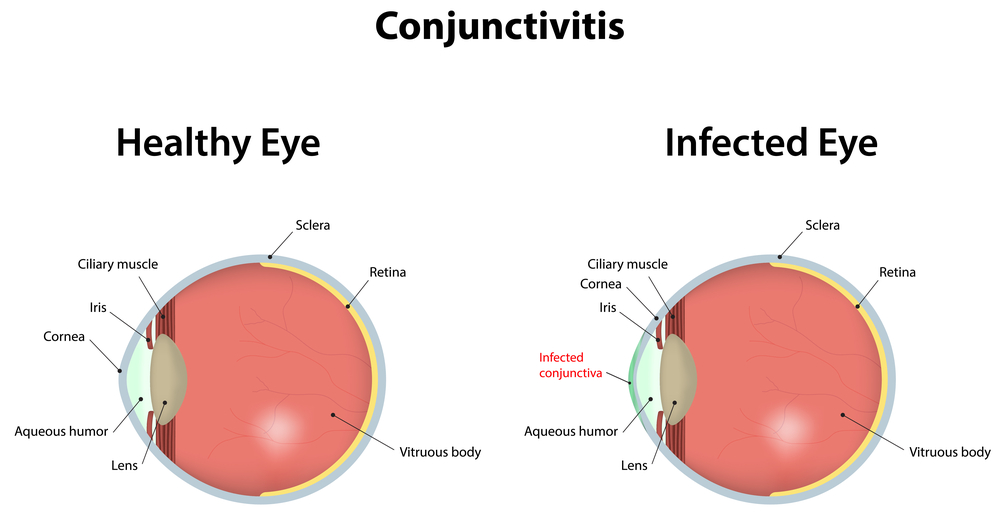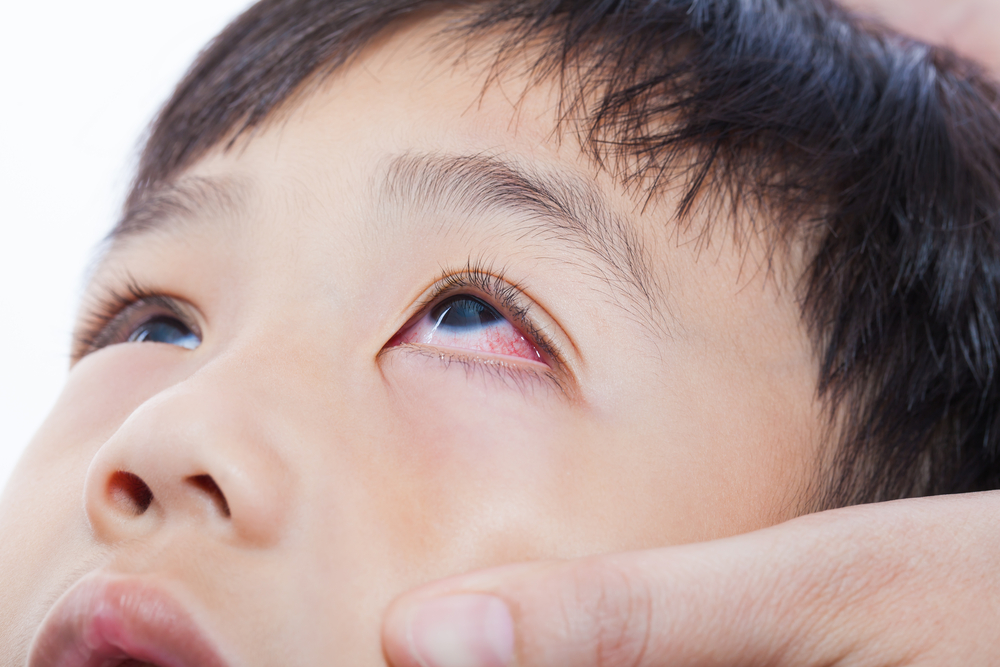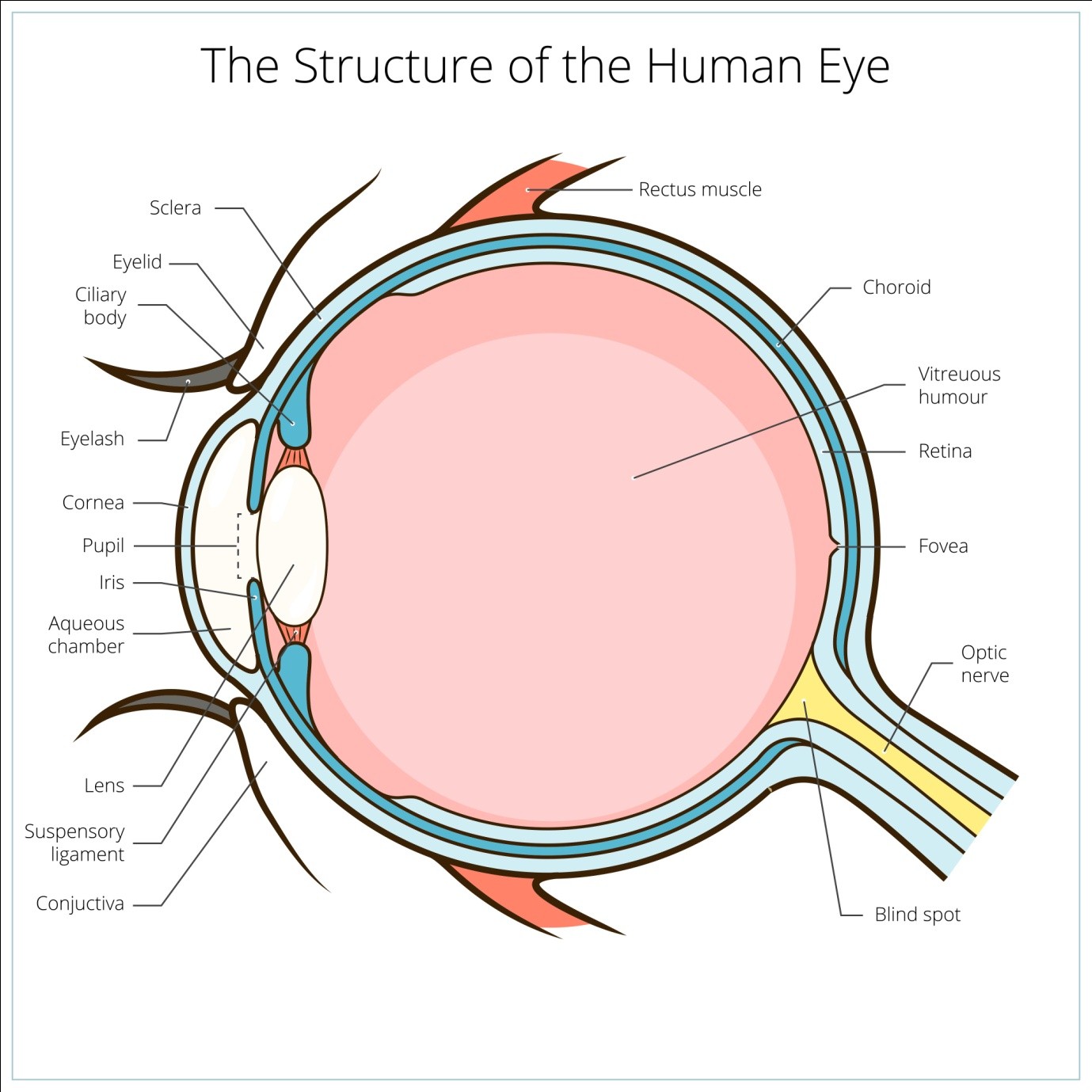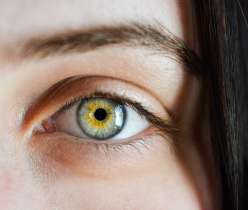Conjunctivitis refers to the inflammation of the conjunctiva – the tissue that covers the white area of the eye and is present inside of the eyelids. Conjunctivitis is caused by some factors including bacteria, viruses, irritants and allergies. Conjunctivitis treatment will depend on what caused it in the first place, whether it was due to an allergic reaction, an infection, or an irritant.
Some of the conjunctivitis symptoms include:
- Itchy eyes
- Redness in the eye
- Increased tears
- Thick discharge on eyelids generally after sleep
- Blurred vision
- Burning sensation
- Sensitivity to light
Bacterial conjunctivitis – This type of eye infection is fairly common. It begins in one eye and then passes on to another. It clears up within a couple of weeks without any treatment. You may be asked to use an ointment or eye drops by your doctor. Take care to follow his or her advice and complete the course of the antibiotics. It helps to prevent recurring of the infection. In some cases, when an underlying infection in the body is the cause of your eye symptoms, your doctor can ask you to take antibiotics.
Infective conjunctivitis – People with infective conjunctivitis do not need any conjunctivitis treatment as it clears up within a few days. However, there are some ways to treat infective conjunctivitis at home. Here are some guidelines:
- Do not wear your contact lenses – If you wear lenses, it is recommended that you remove them until your eyes have completely cleared up. It is best to not re-use the lenses even after the infection as the old lens can be a source of re-infection.
- Use lubricant eye drops – You can get these easily at your local pharmacy. It will help to get rid of any stickiness in the eyes. Keep in mind to follow the instructions in the package while using it.
- Clean any discharge – Soak cotton wool in water and gently wipe off any sticky discharge from your eyes.
- Keep your hands clean – Wash your hands at regular intervals to prevent the infection from spreading to other people.
Also Read: Ways to Protect yourself from Glaucoma
Antibiotics are not prescribed for this kind of conjunctivitis as it goes away on its own. However, if the infection is severe, your doctor may ask you to take antibiotics. Make sure to talk to your doctor immediately if you experience any of these symptoms: pain in the eyes, sensitivity to light, and redness in the eyes.
Allergic conjunctivitis – Some symptoms of this eye infection include mucous discharge, itchy eyes, stuffy nose, red eyes, and dry cough. There are different types of allergic conjunctivitis:
- Perennial conjunctivitis – it is caused by an allergy to pets or dust mites
- Papillary conjunctivitis – it is caused by the allergies to contact lenses
- Dermatol conjunctivitis – it is caused by the allergy to cosmetics or eye drops
- Seasonal conjunctivitis – it is caused by allergies to pollen
Here are some ways of conjunctivitis treatment:
- Do not wear your contact lenses till all the signs have gone
- Avoid rubbing your eyes as it can worsen the symptoms
- Use a cool compress on your eyes
- Wet cotton and place it over your eyes to help ease the symptoms
- Stay away from allergens
If you have perennial conjunctivitis, your doctor may prescribe mast cell stabilizers, antihistamines, and corticosteroids.
Irritant conjunctivitis – this type of eye infection goes away when the irritant is removed from the eyes. Conjunctivitis symptoms include mucous production, tearing and itching in the eyes. Often, the condition affects both the eyes. Your doctor may prescribe eye drops and ointments to take care of the condition.
Also Read: Reason for the loss eye lashes
Eyes are sensitive body parts that need good care and attention. While conjunctivitis is a common eye issue, if neglected it can lead to complications. Follow your doctor’s advice for conjunctivitis treatment and practice good hygiene to heal your eyes fast and be safe and clean at all times. Consult your doctor to know the best way to prevent certain types of conjunctivitis and the ways to take care of the condition at home.





